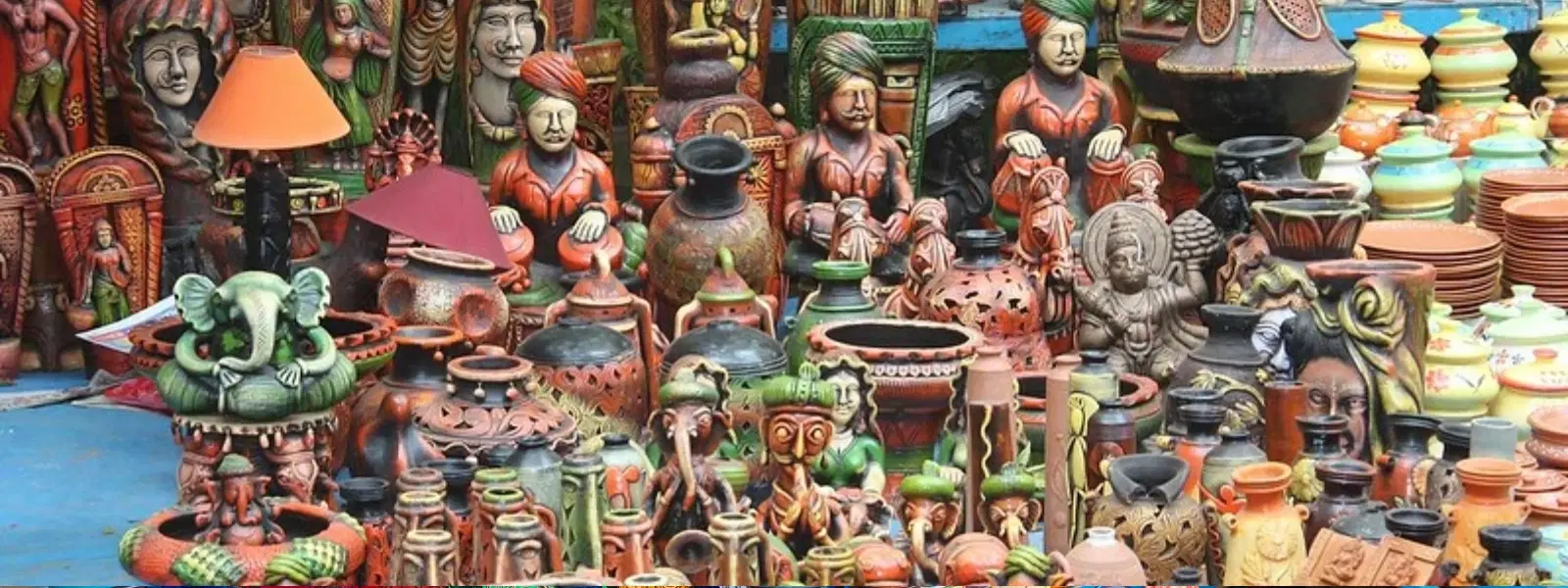
Hotels
•04 min read

Rajasthan dazzles with a vibrant mosaic of colors, sounds, and textures that echo its rich cultural heritage. The state is renowned for its timeless traditional crafts, and its craft villages are akin to living museums where history, art, and community converge. This blog guides you through these enchanting hubs that nurture local crafts and artisan communities, offering insights into the cultural significance of each village and practical tips to experience authentic craft tourism in Rajasthan.
Craft villages in Rajasthan are unique settlements where artisans live, work, and exhibit their skills. These villages serve as custodians of the state’s enduring traditional crafts of Rajasthan, preserving techniques that have been passed down through generations. They are not just places of work, but vibrant communities that breathe life into the handloom, pottery, and folk art that define this region.
These artisan villages are the beating heart of Rajasthan’s cultural heritage. They sustain and showcase local crafts—from intricate handloom weaving to detailed pottery—and help cement Rajasthan's reputation as a global hub for handmade products. When you wander through these villages, you connect directly with the soul of Rajasthan, witnessing the passion behind every creation.
Located near Udaipur, Shilpgram is a sprawling cultural complex that celebrates traditional crafts, folk art, and artisan workshops. Visitors can experience vibrant fairs and festivals that are held annually, turning the venue into a bustling haven for craft enthusiasts. It stands as a testament to the state’s rich tradition of Rajasthan cultural heritage crafts.
Molela is renowned for its terracotta plaques, a true embodiment of Rajasthani folk art. The process of creating these painstakingly handmade products is truly mesmerizing. In Molela, each piece tells a story of local lore and artistic heritage, making it a must-visit for those fascinated by artisanal craftsmanship.
Bagru and Sanganer are celebrated centers for block printing and resist dyeing techniques. These villages are integral to the global textile industry, and their hand-printed fabrics are a cherished reminder of Rajasthan's rich artisanal legacy. Exploring these villages provides a deep insight into how traditional methods harmonize with modern expectations in craft tourism in Rajasthan.
Beyond these wonders, other villages such as Barmer, known for its exquisite embroidery; Pokhran, which excels in pottery; and Jaipur, famous for blue pottery and miniature paintings, offer further explorations of the diverse traditional crafts of Rajasthan.

The artistry of Rajasthan is personified in its handloom weaving. Intriguing patterns and textures emerge from looms as artisans interlace vibrant threads, creating fabrics that are both beautiful and functional. Similarly, in villages like Pokhran, pottery is a time-honored craft that illustrates the creativity and skill passed down through generations.
Rajasthan's block printing and tie-dye traditions are renowned worldwide. These techniques, often used in Bagru and Sanganer, add a rustic charm to textiles, melding practical design with artistic expression.
Beyond fabrics and ceramics, the metal inlay work and wooden artifacts crafted in various villages of Rajasthan are a testament to the state’s intricate artisanal skills. Each piece is a blend of functionality and artistic beauty.
Rajasthan's block printing techniques, like Bagru and Sanganer, use natural dyes derived from plants and minerals, making them eco-friendly and sustainable.
Many craft villages in Rajasthan offer visitors the chance to roll up their sleeves and partake in artisan workshops. Whether it’s pottery, weaving, or painting, these immersive experiences allow you to learn directly from the masters, forming a deep personal connection with Rajasthan artisan communities.
Festivals like the Shilpgram Utsav and Desert Festival transform local villages into celebration hubs where traditional crafts take center stage. These events are not only a visual treat but also serve to promote craft tourism in Rajasthan, connecting travelers with local traditions and practices.
When you engage with these communities, you support the sustainability of local crafts. Buying authentic Rajasthan handmade products directly from the artisans helps keep traditional methods alive, ensuring that these crafts continue to thrive for future generations.
Before setting out, it’s wise to research the individual specialties of each village. Understanding when and where the festivals or fairs take place can enhance your journey. Ensure you plan your visit during the ideal season when the weather is pleasant and the villages are buzzing with activity.

When meeting the artisans, approach with respect and genuine curiosity about their work. Engaging in friendly conversation and asking about the stories behind each craft can enrich your experience. Supporting these villages by purchasing directly from workshops promotes ethical tourism and helps maintain the authenticity of Rajasthan cultural heritage crafts.
When visiting craft villages, look for government-certified emporiums or artisan cooperatives to ensure you're buying authentic, fairly priced products.
Rajasthan is renowned for its block printing, tie-dye, blue pottery, and intricate handloom weaving.
Jaipur is often referred to as the craft city of Rajasthan due to its rich tradition of blue pottery, miniature painting, and jewelry making.
Tribal crafts include terracotta art from Molela, embroidery from Barmer, and camel leather products from Bikaner.
A craft village is a community where artisans live and work, preserving and showcasing traditional crafts and techniques.
Shilpgram in Udaipur, Molela for terracotta, Bagru and Sanganer for block printing, and Pokhran for pottery are some of the best craft villages.
Rajasthan’s craft villages offer an unparalleled window into the heart of traditional artisan life. Through their diverse crafts—ranging from handloom weaving to terracotta art—they preserve a cultural legacy that is as vibrant as the state itself. By exploring these communities, you not only witness breathtaking artistry but also support sustainable craft tourism that secures Rajasthan’s rich cultural heritage for generations to come.